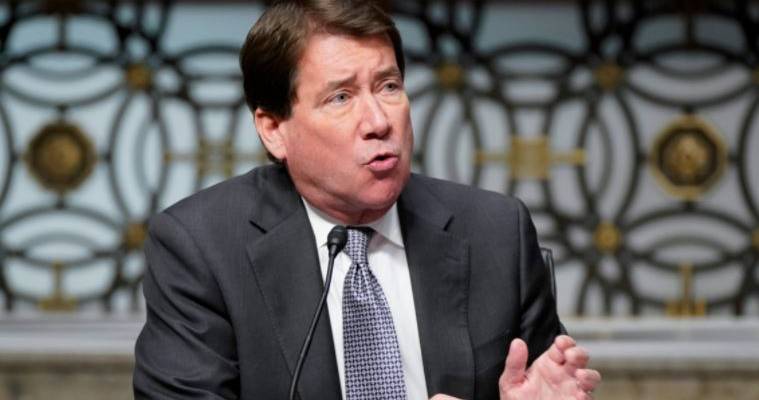Bill backed by 33 Republican lawmakers is viewed as unlikely to pass.
By Pesach Benson, United With Israel
Republican senators introduced legislation on Tuesday that they hope will prevent the State Department from reopening the U.S. consulate in Jerusalem.
The bill, titled “Upholding the 1995 Jerusalem Embassy Law Act of 2021,” aims to “protect the full and faithful implementation of the Jerusalem Embassy Act of 1995,” said Sen. Bill Hagerty (R-TN) who spearheaded the legislation.
“President Biden continues to push forward his inflammatory plan to establish a second mission in Israel’s capital city of Jerusalem — one for the Israelis and a second one for the Palestinians — despite the fact that this plan violates the Jerusalem Embassy Act of 1995 and is completely opposed by the Government of Israel,” Hagerty said.
The bill doesn’t appear likely to pass, however. The Senate is equally divided 50-50 between the Republican and Democratic parties. It’s not expected that any Democrats will break ranks on an initiative on which President Joe Biden has staked his Mideast policy. Vice President Kamala Harris would cast a tie-breaking vote.
In passing the Jerusalem Embassy Act of 1995, Congress recognized Jerusalem as Israel’s undivided capital city and required the U.S. to relocate its embassy there from Tel Aviv. However, the act allowed the president to invoke a waiver on national security grounds every six months. This waiver was repeatedly applied by Presidents Bill Clinton, George Bush Jr. and Barack Obama.
In 2018, President Donald Trump recognized Jerusalem as Israel’s capital and moved the U.S. embassy there. Consular services were shifted to the embassy. In a downgrade of ties, the consulate’s Palestinian Affairs Unit, which fronted the State Department’s diplomatic engagement with the Palestinian Authority, was also merged into the embassy.
During the 2020 presidential election campaign, Joe Biden called the move “short-sighted and frivolous,” though he added that he would not transfer the embassy back to Tel Aviv if elected.
The Biden administration and the Democratic party see the consulate as a key step in rebooting U.S.-Palestinian relations.
Critics say that opening a consulate for Palestinians in Jerusalem infringes on Israeli sovereignty, and that the U.S. can more appropriately engage the Palestinians by opening a consulate in Ramallah or outside Jerusalem. While visiting the White House, Prime Minister Naftali Bennett raised this suggestion, but Biden balked at the idea.
Critics also argue that reopening the consulate re-divides Jerusalem and rewards Palestinian intransigence.
Further complicating the issue is that the consulate is located on Agron Road in downtown Jerusalem, in the western half of the city.
Recent Mideast media reports suggest that Secretary of State Antony Blinken, who is leading the initiative, is preparing for the possibility of unilaterally opening the consulate over Israeli objections. It’s not clear how the U.S. could take such a step as diplomatic missions require permission and accreditation from the host country.
